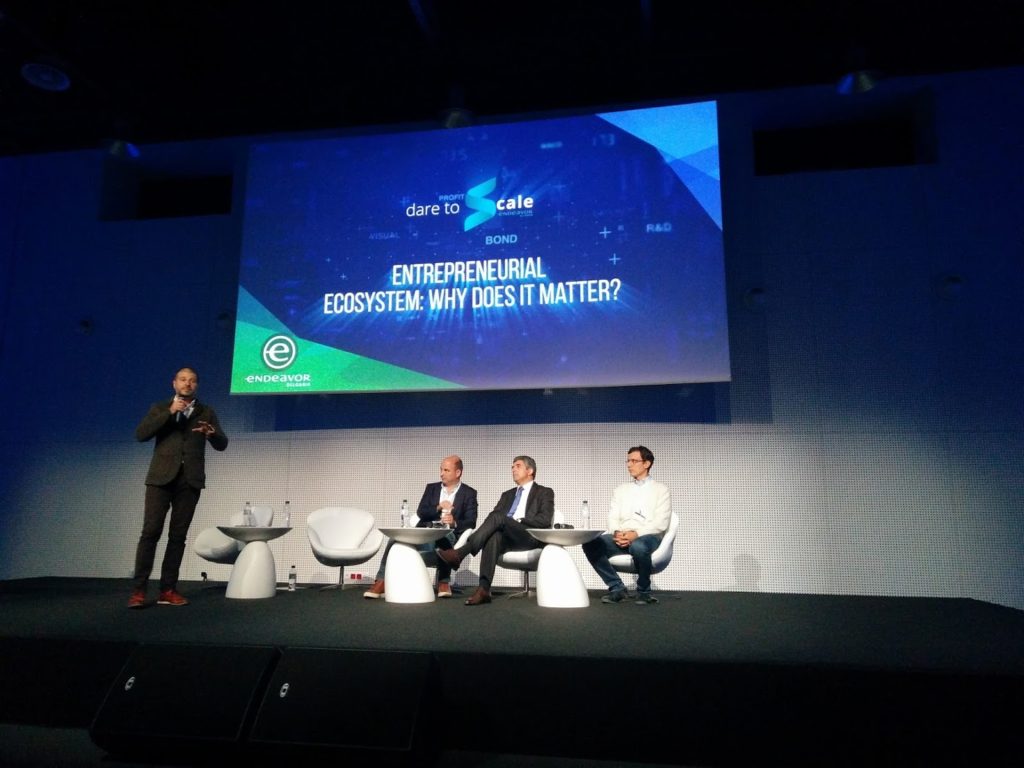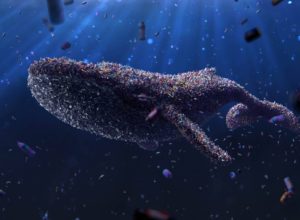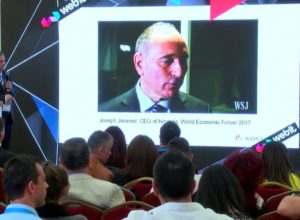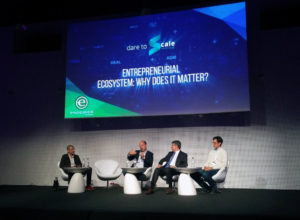Tag: sustainable
Corporate and personal responsibility will lead our path to sustainable future
In years of unprecedented technological advancements our societies are realizing more and more that our development as species comes with huge cost for the environment. For the last several decades we are talking a lot about the human effects on climate, but recently there is another issue that is grabbing our attention - the huge problem with plastic pollution.
Plastics are durable, light and versatile. However, they take up to 400 years to decompose. This will affect people’s lives for the next 16 generations. Our excessive use of plastics is impacting ocean health and biodiversity. By 2050, there could be more plastics in the ocean than fish by weight.
According to WWF, 91% of all plastics used on Earth are not recycled. Their production uses as much fossil fuel as airlines. 99% of plastics are contributing to climate change. Almost all marine animals are under threat
А recent study, published in Marine Pollution Bulletine, shows that fisheries, aquaculture, recreational activities and global wellbein are all negatively affected by plastics. The estimated decline in the benefits humans derive from oceans is between 1% and 5%. The resulting cost in such benefits, known as marine ecosystem value is up to $2.5 trillion a year.
The topic of our sustainable future and the decisions that enterprises and policy makers need to make in order to leave a better world for the future generations will be among the main points of discussion during the upcoming Webit.Festival Europe - the largest Digital & Tech event in Europe.
At the start of 2019 the EU Parliament approved a law banning a wide range of single-use plastic items, such as straws, cotton buds and cutlery, by 2021. The proposition was supported by 560 Members of the Parliament against 35. They also agreed a target to collect and recycle 90% of beverage bottles by 2029.
“Europe is setting new and ambitious standards, paving the way for the rest of the world”, the European Commission’s first vice-president Frans Timmermans, who is responsible for sustainable development said.
Under the new European law, tobacco companies will be required to cover the costs for the collection of cigarette butts and manufacturers of fishing gear will also have to pay for the retrieval of any plastic nets that have been left at sea.
The private sector is also coming in line with the global initiatives. Last month, Etihad Airways made its first fligh without any single-use plastics on board. According to the company, this marks the first time an airline in the region has undertaken such challenge. The move is part of Etihad’s overall strategy to reduce single-use plastics in its organization by 80% by the end of 2022.
Come to Webit.Festival Europe and learn about the steps that world has to make to build its sustainable future.
During the event you will get the chance to listen to top enterprise, science and policy leaders, such as the Airbus Defence and Space CEO Dirk Hoke, the Senior Parther at McKinsey & Co Paul Willmott, the VP of Amazon Paul Misener, the EU Commissioner for Digital Economy and Society Mariya Gabriel, the Deputy Director-General of World Trade Organization Yonov Frederick Agah and many others.
Here you can see a full list of the confirmed speakers at Webit.Festival, while here you can get all the information you need about the tickets for the event.
Perspective from the pharma industry to value-based care
Stamen Popov, the Novartis Oncology Business Unit Head for Bulgaria & Macedonia was a keynote speaker at Webit.Festival 2017. His keynote covered the topics about the “from cost to value ” conversion in healthcare and treatment.
Healthcare spending is increasing faster than than the current economic climate’s capabilities
Many countries are concerned that higher spending doesn’t lead to proportionally better outcomes. Healthcare systems waste a significant amount of resources that limits the fiscal space and hinders performance. The largest percent of wasted resources goes to over-hospitalization, over-examinations and over-prescription of pills. Waste is also created by inefficient or flawed rules, overly bureaucratic procedures and poor execution or lack of best practices, e.g. effective preventive care or patient safety, low volume for specific treatments per hospital, etc. Mr Popov made a point that the most expensive pill appears to be the one which hasn’t delivered any positive effects to the patient. The pricing in the industry has to start evolving with accordance to the fast paced changes in technology and the development of new ways of treatment. Companies should to be paid for a result delivered, not for a specific pill. A shift needs to be made in pricing, away from what has been a transactional approach to a value-based approach. That should mean focusing on the outcomes and really communicating the value of the medicines and pricing them accordingly. Care routed in outdated habits, ignoring scientific findings and motivated by something other than optimal care shouldn’t be the care of today.Focusing on value-based care, reducing waste and directing investments to the point where greater value can be produced is critical for sustainability.
Universal health care aspirations will be hard to materialize if we don’t shift to value-based care and change policies to support this shift. This change requires collaboration with every member of the healthcare ecosystem and better public-private partnership. Healthcare systems should stimulate more effective treatment results with the help of all parties involved in the process - patients, medics, researchers, healthcare providers and pharma companies. If you want to stay up-to-date check the Webit.Festival website for upcoming speakers and our ticket options.Entrepreneurial Ecosystem: Why does it matter?
At Endeavour's Dare to Scale Rosen Plevneliev - the president of Bulgaria 2012-2017, Fernando Fabre - president of Enveavor Global, Vassil Terziev - Co-founder of Telerik Acacdemy had a panel discussion about the value about Entrepreneurial Ecosystem, moderated by Plamen Russev - Chairman of WEBIT Foundation.
 Webit Foundation commits its annual funds to foster the development of the startup and innovation ecosystems in the regions our global events take place.
Founders Games is the startup competition in the program of Webit.Festival Europe. During the event we not only provide free grant for startups to get a free expo table, free festival tickets and opportunity to meet unparalleled selection top enterprise leaders from all around the world + investors, but also an opportunity to WIN €200 000 seed investment!
Find out more about the Founder games here.
Webit Foundation commits its annual funds to foster the development of the startup and innovation ecosystems in the regions our global events take place.
Founders Games is the startup competition in the program of Webit.Festival Europe. During the event we not only provide free grant for startups to get a free expo table, free festival tickets and opportunity to meet unparalleled selection top enterprise leaders from all around the world + investors, but also an opportunity to WIN €200 000 seed investment!
Find out more about the Founder games here.
Strengths to focus on and weaknesses to work on
The discussion went through 3 stages - Bulgaria, Region and Global. Vassil Terziev took over the first stage going through the last 10 years of developing an entrepreneurial spirit in Bulgaria and bringing all the components of a working Ecosystem together. They include people, events which gather several thousand people together talking about the future. New and new formats are coming to Bulgaria every year. "The growth is a function not only of time, but also of communication and aligning the economic interests. In order something to be sustainable it has to make sense for everybody involved. And this is what is still missing." - mr. Terziev said, but staying still optimistic about what the Technology Ecosystem that's being built can do for the other sectors in Bulgaria.It's a kind of magic
"I believe in magic big time. We need the magic of giving back." mr. Plamen Russev We already have the Ecosystem startups and they are growing but do we need to focus on scale ups more? "They will make Bulgaria a better place, Through WEBIT, through Enveavor and other formats we will build those scale ups who will give back to the community." We need an ecosystem where every single person grows within the idea that he or she has to give back to the community – like the Israerli ecosystem. “You can’t say “I’ve done enough, now it’s time to give back” – no, you give back all the time. ”The Local Heroes
Mr. Rosen Plevneliev talked about the ambition of Bulgaria and how he shared his thoughts with several entrepreneurs in the Silicon Valley. “You are as big as your dreams are, not as big as your territory is. And to be globally strong, we need to be locally strong. This is what you, the local heroes are doing right now.”A map of ecosystems
Mr. Fernando Fabre took the audience on a world tour of the Ecosystems – from Buenos Aires, Mexico City, Silicon Valley, New York to Tel Aviv, Beirut and so on. He shared his opinion that it all goes down to inspiration. Big entrepreneurs inspire others – they grow and do the same – thus multiplying the mindset. “You call it giving back, Local heroes, I call it multiplying effect these are three terms that are exactly the same.” Webit Foundation commits its annual funds to foster the development of the startup and innovation ecosystems in the regions our global events take place.
Founders Games is the startup competition in the program of Webit.Festival Europe. During the event we not only provide free grant for startups to get a free expo table, free festival tickets and opportunity to meet unparalleled selection top enterprise leaders from all around the world + investors, but also an opportunity to WIN €200 000 seed investment!
Find out more about the Founder games here.
Webit Foundation commits its annual funds to foster the development of the startup and innovation ecosystems in the regions our global events take place.
Founders Games is the startup competition in the program of Webit.Festival Europe. During the event we not only provide free grant for startups to get a free expo table, free festival tickets and opportunity to meet unparalleled selection top enterprise leaders from all around the world + investors, but also an opportunity to WIN €200 000 seed investment!
Find out more about the Founder games here. 

